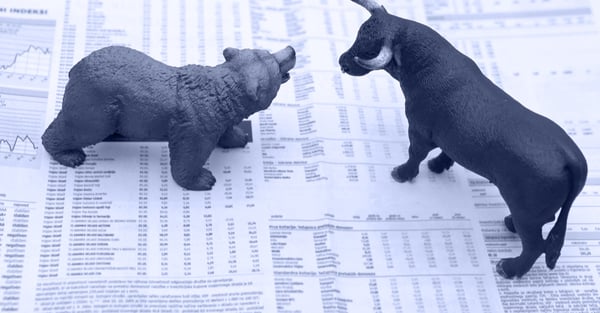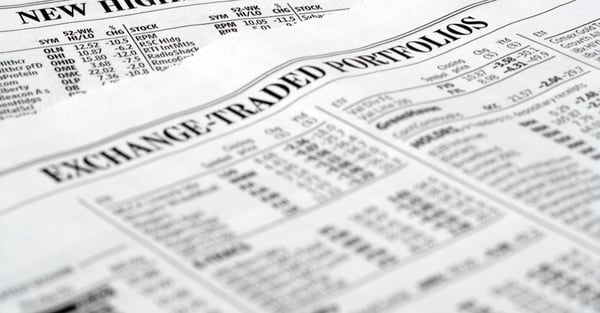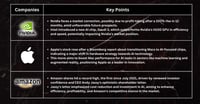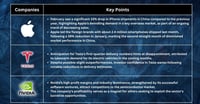You've heard it before, the coronavirus pandemic has triggered a global recession that is worse than anything the world has ever seen.
So why would you risk investing at all when the economy is going on a downward spiral?
That's because there are still opportunities for income growth even in a bearish market.
Before you invest during a crisis, there are some things you should know
Market volatility is part and parcel of investing
There’s no escaping it whether there’s a crisis or not. But, as history shows, the market will always recover, regardless of the length of the slowdown.
For every downturn is an upturn. For every recession, a recovery.
Besides, the 20% decline that occurred during the height of the pandemic was the third one in the last decade, according to finance experts. It's just a case of the wheel turning in a negative direction.
Stash away sufficient funds
Eighteen month's worth of cash is the recommended amount to give you the money you need when you need it, especially in an emergency. Combine this with interests and dividends you'll earn if you have existing investments and you can stay financially sound.
What if you don't have that much? You should have enough cash at home to stay self-sufficient for a few days or weeks or to cover your near-term needs.
Whatever extra you have you can then funnel into your savings account or to invest in safe investment options.
If you’re living from paycheck to paycheck, investing is not a good idea for you but you should save money where possible.
How is investing during the COVID-19 downturn different for beginners and seasoned investors?
Should you invest when the market is down?
If you're new to investing, you'd probably say no. The recent pandemic might have caused you to panic and short-sell stocks to plug your losses as well.
Average and seasoned investors, however, remain calm when markets tank and implode.
As Warren Buffett explained in a 2018 letter to shareholders, the best thing any investor can do, beginner or not, should keep a level head since the market will always be volatile.
In a 2016 interview, he also said that long-term investment options are how money is made from investing.
Financial expert and investor Kevin O’Leary, on the other hand, suggests not to be emotional when the stock market goes down. Instead, invest in profitable individual companies and exchange-traded funds (ETFs) that are tax-efficient and cost less.
Discover: How to Become a Seasoned Investor
Smart ways to invest during a downturn and surviving until the market turns

Now that you know what to expect and to think like a seasoned investor, it's time you learn how to invest money during a crisis and where.
Don't even think about taking risks
The last thing you want to do during a coronavirus recession or any downturn for that matter is to experiment with your investment. As much as possible, stay put and stay safe. If you really wish to invest, do so in low-risk investment vehicles.
Put your money on safe investment options
These include bargain stocks, government bonds, gold, utility stocks, and other assets that offer opportunities to trade. Doing so lets you earn an income even during a crisis.
- Invest in companies that will continue to grow during a downturn because of low debts and higher cash hoard. Microsoft, for example, has $134 billion in cash and investments and $79 billion in debt at the end of 2019. Johnson & Johnson, on the other hand, has $19 billion in cash and investments and $23 billion annual net operating cash flow that can easily offset its debt of $27 billion.
- Invest in consumer staples such as food, beverage, and other items people consider essential and that they buy regardless of their financial situation.
- Invest in industries providing goods and services that are constantly on demand all year round. These recession-proof businesses include discount stores, grocery stores, public utilities, cosmetics, pharmaceuticals, and alcohol manufacturers.
Discover other ways to cash in from the coronavirus recession and you should be set during and after COVID-19.
Remember to diversify sufficiently
As previously recommended, keep your investment options diverse. Don't put all your eggs in one sector but on a combination of low-risk, safe vehicles.
Apart from investing in consumer staples, low-debt companies, and non-cyclical industries, you should diversify across asset classes. Invest in fixed income and equities too.
Don't obsess over your losses
During a down market, expect investment values to drop. Remain steadfast and your portfolio will survive when recovery happens.
Be ready to liquidate some investments
Doing so is one of the ways to have cash on hand when other sources produce zilch or are insufficient. Consider liquidating passive assets, gold, or take money out of your retirement fund. You may be able to make tax-free withdrawals.
Prepare to realign goals and outlays
Since you may need to liquidate investments and switch to safer investment options, you need to review and adjust your portfolio as well.
Make sure to chart a path that leads to achievable and realistic goals without sacrificing your lifestyle. Create a list of negotiable and non-negotiable goals and adjust where necessary.
Identify your portfolio’s problems

It's important to review your investment portfolio regularly to identify problems that might be lurking around. With the market going through changes, now is the best time to run some checks.
Who knows? You might discover why returns are not as healthy as you would have wanted.
Diversification
- Are you allocating a lot on just a few investments?
- How much of your asset is allocated to stock and/or bonds?
- Does your portfolio have a good balance of risk and return?
- Are you unknowingly at risk of double exposure of the same asset class? For example, you hold stocks and mutual funds that are exposed to Apple?
Appropriate asset allocation
Is your allocation on cash, equities, and fixed income suitable for your needs? If you plan to make a large withdrawal in the short term, for instance, do you have the right allocation for it?
Tax fees
- Is your investment portfolio tax-efficient?
- Do you have taxable bonds in tax-deferred accounts?
- Do you have investments that are taxed as collectables or taxed on income?
Fund expenses
- Are you paying more to buy and hold investment vehicles?
- Is your funds-expense ratio reasonable?
- Is there a way to save on expenses to sustain growth in your portfolio?
Once you identify where corrections are needed, it will be easier to protect your portfolio during a recession. This is when you can apply diversification, rebalancing, and resetting of asset allocations.
Look for other income and growth potentials in a down market

Look for and leverage attractive valuations
If you're in search of more options to invest in stocks, check out sectors with lucrative valuations. But make sure to invest with a longer-term view. Because even when lockdowns are lifted, it will be a while before the pain goes away.
So think like a seasoned investor and choose companies that have the best position to survive the pandemic. To reiterate, these industries should:
- Have a balance sheet that can pay for fixed costs even with minimal revenue.
- Offer non-discretionary goods and services.
- Have a comparative advantage to emerge stronger even when consolidation happens across sectors.
Inverse ETFs: Earn profit while the rest of the market suffers
An inverse ETF is an exchange-traded fund that does the exact opposite of a certain benchmark or index. In the coronavirus-induced market volatility, the demand for it has increased. Naturally.
An example of an inverse ETF is the ProShares Short S&P 500. It is designed to match the S&P 500's daily returns in the opposite direction. When the S&P 500 drops by 3%, for instance, ProShares Short S&P 500 rises by an equal percentage.
Therefore, to make your portfolio recession-proof, you should invest in ETFs. Just remember that their benefits are for the short term and can result in huge losses in fluctuating markets. Other ETFs that can help you combat the impact of this pandemic on your investments are Treasury ETFs and Dividend ETFs.
To further protect your portfolio regardless of market conditions, trade Forex, a recession-proof investment vehicle. Build your income and grow your wealth in the world's largest financial market. No better place to start than right here with us! Begin trading with Fullerton Markets today by opening an account:
You might be interested in: Online Referral Business Programs: A Passive Income Option to Tide You Through the Current Crisis and Beyond














